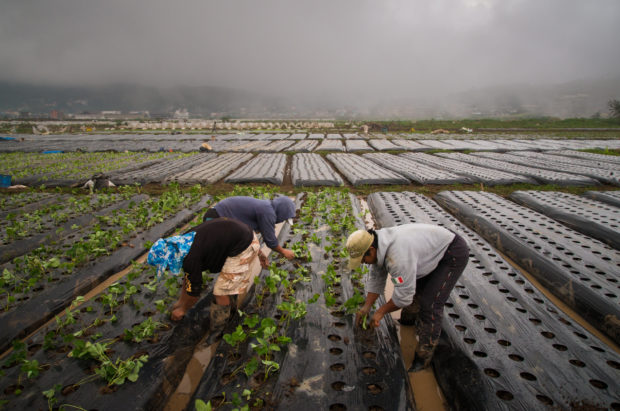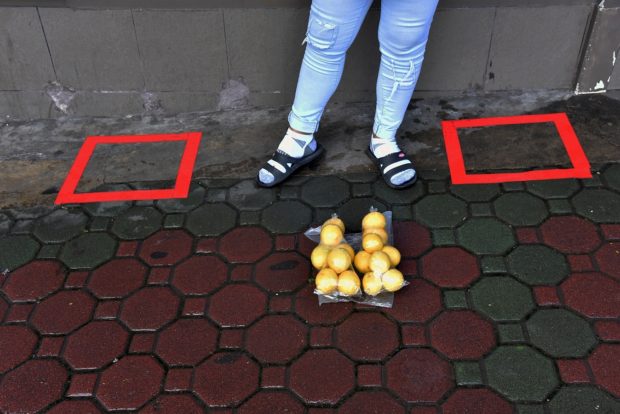New vegetable outlets rise as Cordillera farmers recover from pandemic losses

GOOD TIME. Benguet farmers plant salad vegetables during the rainy months, as depicted in this stock photo of a La Trinidad Valley farm in 2014. PHOTO BY RICHARD BALONGLONG
BAGUIO CITY, Philippines –Subdivision convenience and sari-sari (variety) stores and even gasoline stations have become new outlets for Cordillera vegetables as demand rises in big cities reeling from prolonged quarantine.
Cordillera agriculture suffered as much as P77 million in potential revenues when the movement was restricted during the March to June lockdown based on government data.
But farmers and food distributors have quickly recovered, earning P220 million in sales through direct marketing facilitated by the Department of Agriculture (DA), according to Cameron Odsey, the agency’s Cordillera director.
But cities in Metro Manila, which have a combined population of almost 13 million, require constant supplies of carrots, cabbages, lettuce, potatoes, and cauliflower grown in Benguet and Mountain Province, Odsey said.
Almost all Luzon markets failed to take in vegetables generated by farms for four months because the same regulations that slowed down cargo transport also affected the movement of people leaving their homes.
Article continues after this advertisementFood distribution
But cities have developed new ways of food distribution, Odsey said. He cited conglomerate San Miguel Corp. which turned some service stations of its affiliate, Petron Corp., into vegetable outlets in Metro Manila.
Article continues after this advertisementAccording to Odsey, the DA is convincing farmer groups to form cooperatives that would manage production and trucking to take advantage of market changes during the pandemic.

During the hard lockdown and the subsequent modified quarantine, enterprising farmers risked being caught by public order and safety officers and sold vegetables and fruits at Baguio sidewalks to earn a few pesos. PHOTO BY EV ESPIRITU
Commercial trucking has been one of the added costs to farmgate prices that raise the value of Cordillera vegetables when they reach markets in Metro Manila, Pangasinan, La Union, Central Luzon, and parts of the Visayas, he said.
Farm cooperatives would also help coordinate planting to prevent overproduction, Odsey said. Last week, cabbage prices dropped due to an oversupply.
Benguet is converting excess vegetables into new products by the middle of 2021, tapping the technology developed by the Benguet State University.
DA is infusing P20 billion into the Benguet Agri-Pinoy Trading Center (BAPTC) in La Trinidad town for building and equipping it with a dedicated vegetable processing facility.
BAPTC was developed as a food exchange hub for crops grown in other regions but it had been underutilized.